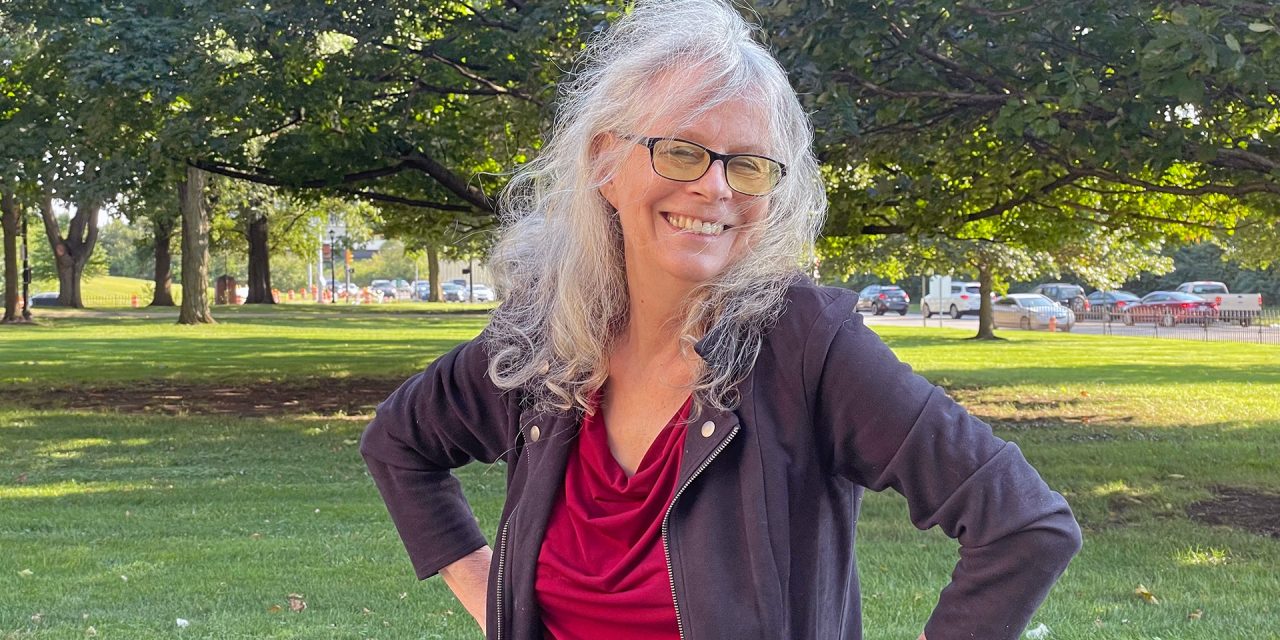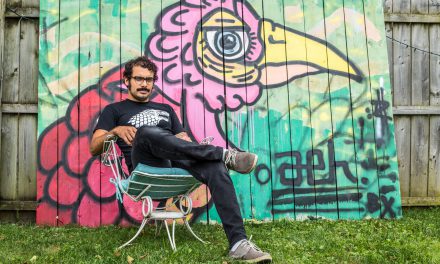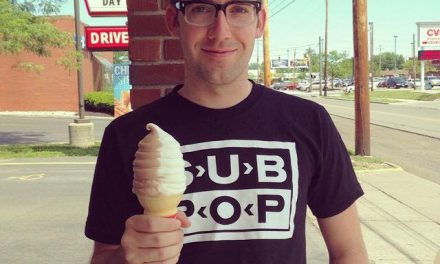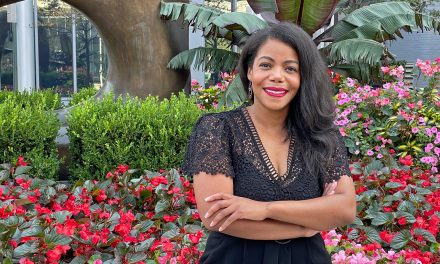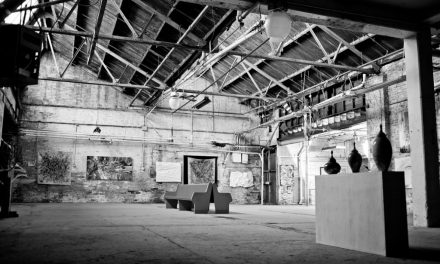Podcast: Play in new window | Download
Subscribe: RSS
Tim Fulton 00:13
Ladies and gentlemen, welcome to the confluence cast presented by Columbus underground. We are a weekly Columbus centric podcast focused on the civics, lifestyle, entertainment, and people of our city. I’m your host Tim Fulton. This week. It has been said that festivals are one of the best things about our community. By extension, the folks who conceive and orchestrate them are making the city measurably better. This week on the occasion of the upcoming hot times festival, organizer Kandi Watkins discusses the origins of caamfest Why hot times community festival is the friendliest festival in town and the importance of leaning in to ensure that these festivals continue to thrive. You can get more information on what we discussed today in the show notes for this episode, the confluence cast.com. Also the confluence cast is on Patreon. Find out how to support this podcast on our website, the confluence cast.com Or at patreon.com/confluence. The confluence cast is sponsored this week by the Upper Arlington Labor Day Arts Festival. The Upper Arlington Labor Day Arts Festival has celebrated and shared the arts with the community and the region for over 50 years. This event features fine art and fine crafts from over 120 artists, live performances, food trucks, and art activities. Join the fun Northam Park on Monday, September 5 from 10am to 4pm. For more information, visit upper arlington.gov/el de AF. Enjoy the interview. Sitting down here virtually with candy Watkins, I think of as the person who helps put calm fest or community festival together. She has been volunteering or involved with calm fest for the past 47 years. We just wrapped up its 50th year we’re here on the occasion of the upcoming hot times festival, but really wanted to sit Kandi down and talk through the myriad of festivals and organizing and community development that she does. Candy. There’s my intro for you. How are you?
Candy Watkins 02:32
Thank you. That was wonderful. I’m great. How are you?
Tim Fulton 02:35
I’m good. A couple episodes ago, somebody had brought up caamfest As one of the exemplary things about Columbus. I had given a little bit of a history lesson in that episode. Here’s where it first started. And it’s 50 years old. Want to get your perspective of what’s the narrative of how that festival started and how you got involved three short years later. Well, the
Candy Watkins 03:01
festival was started by a group of community organizations working together, trying to find a way to showcase the works that they had done and the good works of other community organizations liked mine, like minded organizations, reasonably progressive and of course, back then progressive was not even around. Okay. But and then it it was on campus for a number of years. And then it moved and it moved into the short north into a vacant lot that we used to kind of refer to gleefully as the surface of the moon because we always had to fill all the holes in it every year in order to throw any kind of party. I believe it was the space where the old hospital was torn down in the short north, which is now a Victoria gate, the Victoria gate to occupy that land. So for years we were there. And our street fair, just wrapped around that little area came down Park Street went down Russell Street, and we kind of partied in the dirt. There was no grass, there was no plantings. And then we asked the city if we could move into the park. And after some discussion, and some promises that we would help take care of the park, even back then. We were allowed to use the gazebo and ultimately eventually allowed to put in the Bozo stage and how we ended up in the park. What they had to do was in the original Park deed or the original land give from Lincoln Goodale there had been a specified thing that there could be no vending in the park. I assumed that had been there had been some reason for that, you know, at the turn of the century, who knows? But we had City Council I had to take care of that. And so as soon as we could vent in the park, then we could use the park, put the street fair through into the park and, and moved off of the land that became then Victoria gate, and Victoria gate built.
Tim Fulton 05:16
Got it. And so just is that part of the reason why the footprint of caamfest keeps most of the vendors outside of the physical Park, because I know they’re on the street, they’re,
Candy Watkins 05:28
they’re on the street. And they also wind through what we call Shady Grove Road, which is the road that runs up to the shelter house. So we also have food trucks and vendors on Shady Grove Road, and also on the small access road that goes out to the very, very old good ol gates on good ale. And we run them down the diagonal path sometimes depending on how many events we have. So we do use the park preventing quite quite strongly and so does pride. And so do several other events now. So it’s served the city well.
Tim Fulton 06:04
Gotcha. Again, most of this is for those that don’t know, talk about the organizing process you guys meet once a month, all year
Candy Watkins 06:15
round, except for August, we take recess in August.
Tim Fulton 06:18
Got it, because you’re planning the hard times festival that makes sense. Talk through sort of the some of the things that folks don’t know about that you have to organize and get ready for a festival like calm fast?
Candy Watkins 06:31
Well, I think most people don’t see the back of the house. So what I really do is the back of the house, I do logistics and permitting and licensing, I do event compliance with their licenses. So in other words, you tell them, You’re gonna put your stage and X, Y and Z and then you put it somewhere else, then we move it back to x, y, and z if you want the city to sign off on your permits. Okay, so there, there was always an ever growing burden on the festival promoters and producers to meet with and adhere to the city and state rules. So it’s an ongoing education process to keep up on all the rules, you know how big a stage can be before you have to license it, how big the canopy can be before you have to have a third party engineer come in and give you a letter to give to the city to say it’s okay. All of which, by the way has happened in like two days. So it’s our city is trying very hard to roll most of the permitting for events into one documents that everyone fills out and it’s pretty comprehensive. But we do still have some glitches wherein you still have to go somewhere else for this permit. And somewhere else for that permit. At least not as bad as it was. But there are a substantial amount of permits, well over eight or 10 of them for each event, right? Somebody has to put them in it’s an hour’s worth of work maps have to be built. And then once all that is done, all the equipment has to be ordered fence, you know, fencing has to be measured in order, porta Johns, staging, tents, tables, and chairs. Um, all these little things that nobody notices when they walk in an event. Those all have to be in place, and then the event can happen. So then we produce which is the music, the arts, the vendors, but you have to have your bricks and mortar in place for the event to be strong enough to stand
Tim Fulton 08:45
well and with my couple of times pulling alcohol permits for events, what has always been fascinating to me. And this is not to say that it’s easy, but it’s like an eight step process. But at no point if you’re dotting your I’s and crossing your T’s, at no point is anybody going to tell you no it’s not an opinion. Like I was granted this by the city No, it’s this is our park and this is like right you know of course I’m sure there’s some negotiation that has to happen as you said with like with vending in the park
Candy Watkins 09:22
well there’s also when you’re when you’re licensing for a big stages, big equipment, you’re licensing with fire and development because you’re building what they call a temporary structure. And so it all depends on people in development and fire and how they interpret the state code. What happens to us out here so in other words, I got a permit sprung on me between two festivals a week apart this year, okay. But we we managed to deal with it. But something is always happening. There’s always something Cooking with permitted licensing, I think the state is one of the easier ones to get through. But it truly does depend on a lot of times it comes down to the individual sitting behind the desk and how they feel that day. You know, they’re having a bad day, you’re having a bad day.
Tim Fulton 10:17
Got it? So going in with a positive outlook may help a little bit. Yeah. And you and I assume caamfest is sort of how you got your start in organizing festivals at this point. Okay,
Candy Watkins 10:32
it’s not okay. Um, I was part of a group called we can be, and we can be owned all the stores on Pearl alley. For years and years, we had Charlie’s guitar and EG leather sunshine, which was a head shop, and several other little shops and I had new territory leather Outfitters. And we bought three buses, because we wanted to all go to concerts together. And there were so many. And that was a that was our downfall. Because buddy, we could not sit in one place after we bought those. And we just one day, just half of us took off and left and just left and went to Florida to a Pop Festival, where we worked because we have to work to get in, because we didn’t really take money. And then we came home and realized we had to close all the stores and deal with all that. So we did that. And then we went back out on the road. And we started hiring ourselves out at festivals, big festivals, this crew. So while we got hired at the Atlanta Pop Festival, the second Atlanta Pop Festival on the buyer in the speedway around Byron Georgia, okay. Our guys were not real Fence Builders, and that’s what they had us doing. So we were leaving a few nails out so you could get the fences. And we got told we’d better go across the street and work on the free side and they take care of us and it’d be okay. So we went okay, and we built staging and light towers, and they brought over equipment and generators, imported jobs, and because they had to build a free side to the festival. And in reality, I got married the first time on that stage.
Tim Fulton 12:16
So okay.
Candy Watkins 12:18
So you know, that’s sort of where we learned to do festivals was doing them on the big Pop Festival scale out in the world. And then when we came back, these smaller things were really less cumbersome, a lot easier. You weren’t living there two weeks, you weren’t, you know, right. You weren’t cleaning up after 50,000 million people.
Tim Fulton 12:41
But you could demonstrate to these to the folks who maybe had the idea but weren’t necessarily executing it properly. You could say like, I can raise my hand and know a little bit about how to put this together. And let’s contact the city. Because again, it’s a multi step process, but at no point is anybody gonna tell you? No,
Candy Watkins 13:02
usually not. Our city has always considered its festival says its crown jewels. And so do I. And while it’s becoming more expensive, and a little more cumbersome, permit wise, and of course, every every thing you have have to rent or buy or serve is much more expensive. I still feel that the festivals are going to survive and new ones are going to come up.
Tim Fulton 13:31
Yeah, well and caamfest is a nonprofit organization, you guys are able to fund the festival by way of alcohol sales and then also right, the you know, the vendors are giving a portion of their sales to the back to the festival. Yep. Talk about hot times, which I which I think of as informally as the volunteer Thank you party.
Candy Watkins 13:58
Well, hard times is this year 45 years old. So it has been going on for a long time. This festival happened when no one when people said it couldn’t because of the neighborhoods and and we always felt that this was a great neighborhood, you know, no different than any other neighborhood. Basically hot times has had several homes, several different homes. It was on Broad Street for a while. It started on 18th and Brighton and it started as a neighborhood flea market and it was all the townies flea market and then it got to be called the old townies festival. And then it got to be called Hot times basically after the Howlin Wolf song how times in the old town tonight. Okay, okay. And it’s been hot times for decades now. It moved on to the health department lawns in 1989. So it’s been there for decades and only has during Cote COVID And we did it somewhere else. We’re in COVID. But other than that, it’s been just lovely. It’s was once called the friendliest festival in town by the Columbus Dispatch. It’s got open arms to everyone. It is a classy arts experience for the neighborhood. So we bring hard cars from all over the world we bring entertainers when we can afford them. We bring in name entertainers. But this year, because it’s an anniversary, we’re all local, every local, every band is local. We have three stages running one is under a big tent, which is lovely. It’s under a 60 by 120 foot tent, which is fun. It’s fun to be in. And the other one is the size of the jazz stage. I come okay. And it is on the north end. And then we also perform off of the porch because the porch is just a natural stage there. And so we do small things, songwriters, singers, dancers, Hillel dancers, that kind of thing off of the porch so that there’s some activity there. This year, we have three art cars traveling in from out of town all over the country, plus our local art cars. And we have tons of great food lined up. Vendors lined up, it should be a lot of fun. I think people are really interested in getting back out there, even though a lot of people still wear masks, and we say masks are welcome. Yeah, I mean, you know, and we really are even considering asking people to wear masks under the big tent. Well, I was about to say it’s an outdoor thing. It is an outdoor thing, the 10. Right, it is an outdoor thing. We just leave it up to people, but I think, you know, you’ll see masks and you won’t see them. And that’ll be fine. Whatever. I think, you know, we still do a little social distancing. You know, we encourage all of those same things, because it’s really not gone away. It’s just kind of faded, you know, but we still have to be careful. And we have to be prudent. And I think the real turning point was being able to vaccinate more people. So,
Tim Fulton 17:07
absolutely. So would you characterize sort of the vibe as like a little bit more neighborhood oriented? Yes. caamfest, but largely, very similar in terms of the type of folks that are there, and what you can experience their
Candy Watkins 17:25
hot tongue serves a different demographic. Okay. Okay. Hard times, because of where it has been, as traditionally has a major African American component is built a lot around African American culture, dance, drumming, music, food vendors. So caamfest really kind of had a problem with that for a while they were hippies, white
Tim Fulton 17:57
hippies, right. Yeah, well, and there was some critique of it,
Candy Watkins 18:02
right. And so the partnership between the two events has allowed both to grow really nicely. So that now caamfest has lots of wonderful vendors from all different kinds of cultures and walks of life. Whereas before they did not, and hot times has the caamfest Thank you party has the support of caamfest equipment, caamfest volunteers working with it. So the partnership really worked nicely. I remember the first year Tony Weston, the Amani dancers were on the caamfest stage, how surprised the audience was, and how how they just cheered and screamed, and because, you know, it was so new. For most of the people. It’s been a good, it’s been a good partnership.
Tim Fulton 18:59
And how long has that been a formal partnership?
Candy Watkins 19:03
Wow. A long. It’s hard to say. Well, a lot since the beginning. I mean, okay. Our net was playing in both places. You know, Arnett Howard, we kind of connected over performers for a while and
Tim Fulton 19:20
right. Well, I guess what I want to make explicit is that the partnership didn’t form as a result of the critiques. That came a number of years ago, there was some media coverage calling out caamfest on being basically to white and not being what’s interesting to me. And the way that we’re talking here is that they claimed that it wasn’t reflective of the community that it was in. What’s interesting is it kind of was it was just, just like right, this is what this is. is by being more inclusive and aware of the world around, I think is what? You know, there was not hip hop at caamfest Because but
Candy Watkins 20:11
now there is. But not that. First off, if you know the music committees at all, Darrell Mendelssohn Yeah, serves on both festivals. And so it really, Darrell was able to pull performers from hot times, to introduce them at caamfest. And start those new genres to be played. You know, we had to change things up a little bit this year, so all the music got moved around. And so every stage had a mixture of music, rather than having one have one like jazz stage or this or that, we liked it, because it got the crowd moving around. You know, if you didn’t like that band, you walked over here and you liked that band. So for us, the crowd movement is always good, because then they’re shopping, and then they’re drinking, and then they’re having fun and dancing. And absolutely, Darryl was able to just cross that over very nicely, in a lot of ways. Susie Simpson books, the North stage, the parson stage, and she books, she books it a little differently. And so when you, you can look at them both. And you can see that they work very hard at culturally, making sure that all of the music reflects the community and reflects the people that are there and want to hear it. It does rotate crowds through don’t get me wrong, demographics changed through the course of a day. It can’t get anywhere, you know, you you’re playing hip hop for two hours, you’ve got a different crowd than if you’re playing classical music. Yeah. But everybody seems to love everything. And that’s, that’s the key, introduce everybody to everything.
Tim Fulton 22:01
I like that. You know, and you have been a part of some of the newer you know, I don’t think folks think of Highball is new anymore, but have been a part of sort of bringing about these the new festivals as well, including the Whitehall food truck festival, which I think is only like, six years old,
Candy Watkins 22:23
I have a production company now called center line, it’s referred to the third line of the street, you know, the dotted line in the center of the street. And we do about six events a year now. Hi, I’ve always done high ball Halloween since the beginning. It’s a lot of fun. What a great show. I do Taco festival. Now taco festival, loves, like, when food truck festivals downtown, usually write their permits and do their compliance. A lot of shows I’ll just do compliance for and do the permitting some shows I’ll actually back at the house for that. That’s a vastly different job.
Tim Fulton 23:03
Got it? And you are I mean, there are, at least in my head, there’s really only like a half a dozen of you that like do this formerly know how to, you know, know exactly all the steps that you need to do. I mean, it’s a it’s a small, it’s a tight group of folks. And you guys all work together?
Candy Watkins 23:25
There. Yeah, we have we’re really trying, though, to make sure that the permitting process and the logistics process for festivals is kind of more common ground. The block parties still have to fill out some of the same stuff the big shows do Yeah, you know, the more people that know how to do this, the more we know that into the future, they’ll still be crown jewels in our city. Yeah, you know, so I try and teach people to do it, even though you know, I have a company that does it. And obviously, I have an economic reason to not teach people I still try to teach people because the more people that know how to do it, the better.
Tim Fulton 24:05
Absolutely. And I think then that that sort of the call to action here is help sustain those crown jewels that we have in festivals, either by way of just volunteering or showing up to a monthly planning meeting, or getting in contact with organizers and lending a hand.
Candy Watkins 24:24
I mean, volunteering is so important, a couple of hours of your time is nothing you’ll have a good time you’ll get a t shirt and maybe even a drink. Right? You know, it’s so important and it culturally enriches you even though you may say Oh, I don’t want to get up and go do that. Once you get there. It is so fun. And you know, you’re gonna have fun. It’s, so sign up and volunteer and just even if you’ve never done it, try it out, do something simple. You know, fresh work a stage, you know, do something. Work on the logist Six crew lift fences, tables and chairs. You know, you don’t have to do anything special. Every job is important. Every single one builds the show and tears it out. By the way, tearing it out is always hard.
Tim Fulton 25:15
Yeah. Well, and for those considering going to hot times, there are volunteer opportunities on site as well. Yep.
Candy Watkins 25:21
Sure there are. And it’s a lovely site. It’s at the health department, which is 240 persons Avenue, there’s parking up on the parking ramp in the back. And in some of the neighborhood streets. There are some parking lots around. So there is it’s just a wonderful, wonderful scene. We have a lot of people ride their bicycles. Of course, a lot of people walk because it’s in the community. But you know, it’s just lovely to stand on that site. You’ve got a gorgeous view of downtown, the sunsets over downtown, the music plays that food smells great. You know, the children are running around and playing, and it’s just a beautiful thing.
Tim Fulton 26:05
I love it. Candy, I end every interview by asking folks what they think Columbus is doing well, or what Columbus does do well. And of course, then there’s a follow up question of what is Columbus not doing so well. You can start with whichever you want. I love it when folks go beyond the auspices that we’re here to talk about. So, got Jack, what is Columbus doing? Well,
Candy Watkins 26:36
well, I think Columbus is doing a lot. Great. Okay, I think it’s doing some really bad things, too. I think unbridled development is not helping with a lot of tax credit. And a lot of stuff were really the burden falls on the homeowners sitting in, in the neighborhoods. And it’s it’s difficult to watch something get torn down that you’d like like, we had a park in our community. We had to deal with an entity I’ll leave it unknown. The deal was into perpetuity. The entity some both lawyers died. paperwork was not anywhere to be found. I certainly couldn’t find anything I had. They sold their ground for a oversize development in the community that no one wants, that doesn’t have any affordable housing. And, you know, so our community and a lot of communities in Columbus are kind of suffering from that overbilled right now. And people used to colloquially call it gentrification. But that’s just such a vague term. Really. People interpret that differently. When you look at your older neighborhoods, they call it investing money. We think investing money might be finishing the existing housing stock that’s sitting in boards. So that’s one thing I think could be done a little bit better. I think they’re doing beautiful things. The riverfront is fabulous. Bicentennial Park is lovely. Genoa Park is lovely. I think there are plans for the other little chunk of ground there that I think they call West Bank park or something. Okay, it’s that little chunk. That’s where the health department used to sit. You know, I just think all along the river they’ve done beautiful development. In our it’s very difficult in Columbus right now with all the construction and with Columbia gas tearing up the streets. That could have been planned a little bit better, but my understanding is that you have to let them come when they apply to come so okay, you know, because I have complained because I couldn’t even get home one day, I’m on the phone. I can’t even get Oh, you got all this. But I This too shall pass and we will have a beautiful city. So this is a great town. You know, every time I want to leave I don’t. So it’s I think it’s a great day out.
Tim Fulton 29:14
Candy. Thank you so much for today.
Candy Watkins 29:16
Thank you and can I say one thing? The dates for hard times are September 9 10th and 11th. Again, it’s at 240 persons Avenue and we’d love to see everybody.
Tim Fulton 29:26
Absolutely and I will link to all that in the show notes as well. Thank you for listening to the confluence cast presented by Columbus underground. Again, you get more information on what we discussed today in the show notes for this episode at the confluence cast.com Please rate subscribe, share this episode of The confluence cast with your friends, family, contacts, enemies, your favorite festival organizer. If you’re interested in sponsoring the confluence cast get in touch with us. We can be reached by email at info at the confluence cast.com Our theme music was composed by Benji Robinson. Producers Phillip Cogley, I’m your host, Tim Fulton. Have a great week.

